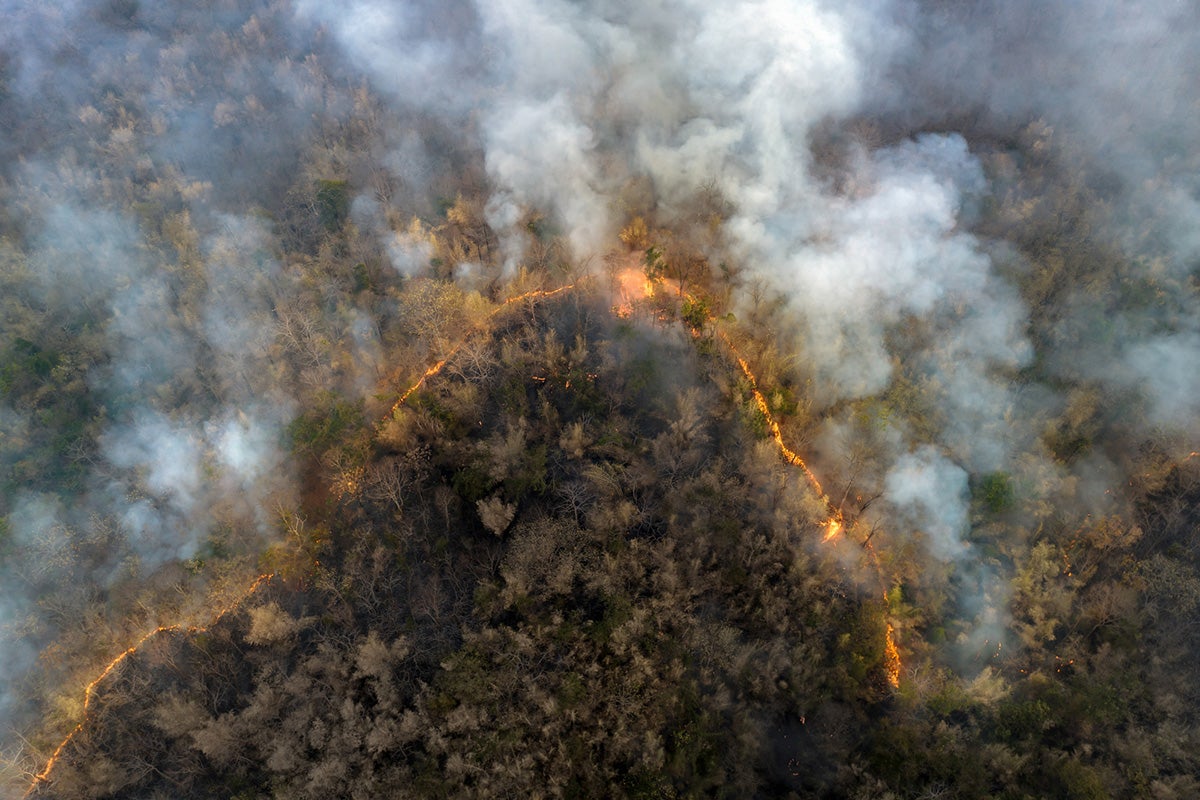Understanding the mental health consequences of chronic climate change

January 18, 2024 — Christy Denckla, assistant professor of social and behavioral sciences at Harvard T.H. Chan School of Public Health, studies how adversity affects people’s mental health and well-being throughout their lives. In a paper recently published in Nature Mental Health, she reviewed the body of evidence around the mental health consequences of chronic, slow-onset climate change.
Q: You identified some significant gaps in what we know about how climate change affects mental health. What do you see as the most urgent research priorities?
A: We already know a lot about the mental health effects of climate-related disasters like hurricanes and wildfires. Now, the most urgent research priority is to understand the mechanisms through which slower-moving aspects of climate change such as temperature variability, ecosystem shifts, and changes in precipitation affect mental health. This is the first step toward understanding when and where we need to intervene with prevention, health care, and policy responses.
Only a fraction of the research around climate change and mental health is being conducted in the very settings that are absorbing a disproportionate burden of the adverse effects. We urgently need to document the effects of climate change on these populations, including adolescents and children, indigenous communities, displaced migrants, economically marginalized groups, and nations and regions on the frontline of the climate crisis, such as Africa and countries most vulnerable to climate extremes.

Q: You suggest that future studies in this area should move beyond a trauma-based understanding of how climate change affects mental health. Can you explain?
A: Chronic, slower-onset stressors tend not to be immediately life-threatening and, therefore, have different effects on mental health relative to acute events. The effects of chronic stressors accumulate over time.
With regards to climate change, we need to reframe its adverse impacts as resulting not just from a singular traumatic event but from compounded stressors that affect individuals, families, communities, and societies. This is a relatively recent challenge and an area that is still developing. An example is understanding the causal influence of ecosystem changes on mental health, including melting sea ice or more frequent and prolonged droughts that unfold over years or decades. These changes unfold across connected systems, including changes to cultural practices (for example, local resource harvesting), communities’ sense of self and place, food security, or access to health care.
To help us gain insight into the many intersecting ways that chronic climate change may affect people’s mental health, we can design studies that use interview or narrative data to capture lived experiences. Also promising are studies that model complex and large datasets integrating mental health, geography, and features of the natural environment such as ambient air temperature.
Q: Are you planning any such studies?
A: We are planning a study that employs smartphone-based data collection to measure how people’s moods and wellbeing are affected by local environmental conditions including urban heat islands, access to green space, or population density. We want to look at the complex links between environmental exposures and individual experiences, and to ultimately help find population-level solutions to mitigate the adverse effects of climate change on mental health.
Photos: Woman with water: iStock / Cheryl Ramalho; Denckla: Harvard Chan School


